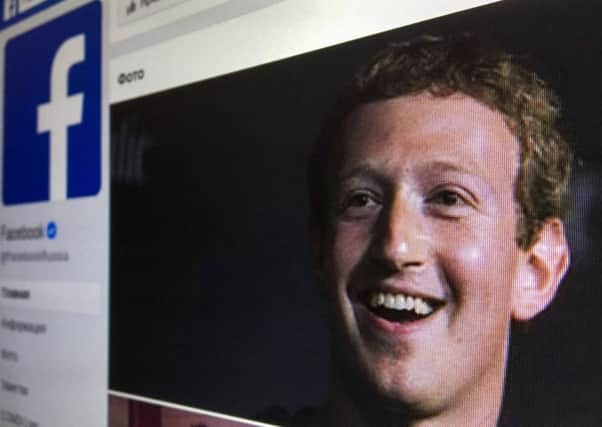Paris Gourtsoyannis: New '˜online slums' need a sheriff


Cities are as old as civilisation, but the ones we know today only came into being with the industrial revolution of the past two and a half centuries.
An economic paradigm shift literally transformed the landscape and how people lived, first in Britain, then around the world, as the countryside emptied into rapidly expanding towns and cities.
Advertisement
Hide AdAdvertisement
Hide AdWhile they fuelled productivity and culture, these transformed cities were also dirty and dangerous, and for many life was nasty (and short). Crime, disease and poverty were not new problems, but their sudden concentration and the alienation from familiar social structures made them acute.
It took decades of campaigning and social reform to make cities places that were livable by any kind of modern standard. In many ways, the job is still incomplete. In some parts of the world, it has barely begun.
We’re told we are living through another industrial revolution, although the digital transformation that has gathered pace since the last decades of the 20th century has surely been counter-industrial. As computers and the internet transforms the economy, people are once again on the move, but less in physical terms: instead, social and cultural change has accelerated, as new technologies give us new ways to interact — and destroy some of the old ways.
Facebook, with a population grown from nothing to encompass one third of the planet in the space of 14 years, is the biggest and noisiest settlement of this new industrial revolution. It is also, we are learning, potentially the most dangerous.
Social media is technology indistinguishable from magic, but the spread of aggression, loneliness, conspiracy, intolerance and misinformation in anonymous online slums is as much of a risk as violence and disease were to bricks-and-mortar cities – not existential, but morally and practically indefensible to ignore. It is going to take decades, if not centuries, to come to terms with these new online settlements.
Some have argued that the up to 50 million people who had their data harvested by Cambridge Analytica to help craft extreme right-wing political messages were effectively asking for it – they put that information online, shared it with a multinational company, and no serious crimes were committed in its collection.
Facebook is effectively a data mining and direct marketing company. If you don’t pay for the product, you accept being the product, the argument goes — and it’s undeniably true. But Facebook wasn’t built to be the world’s biggest online community. It wasn’t even built with advertising in mind. It was created as a stunt to rank college students on their attractiveness by a bored Mark Zuckerberg. If he didn’t know what he was getting into, how can we?
In any case, when the defence is that nobody broke the law, an argument has been lost. The most important changes are the ones which convince society that something legal is nonetheless wrong.
Advertisement
Hide AdAdvertisement
Hide AdIn 1906, American journalist and novelist Upton Sinclair published The Jungle, a fictionalised expose of the meatpacking industry in Chicago, based in part on an undercover investigation by the author.
Meatpacking in the boomtown of the midwest was a product of industrialisation, concentrating resources and labour in a burst of unrestrained development that nonetheless left exploited workers toiling in unsanitary conditions.
The Jungle outraged consumers who the day before had happily tucked into steaks and sausages from the same factories. In a single reading, it helped turn US President Theodore Roosevelt, who had called Sinclair a “crackpot … hysterical, unbalanced, and untruthful”, into a campaigning progressive who said “radical action must be taken to do away with the efforts of arrogant and selfish greed on the part of the capitalist”. The result was the passage of the first federal regulations in the meat industry protecting the consumer.
Sinclair, by the way, was not satisfied. “I aimed at the public’s heart, and by accident I hit it in the stomach,” he said. He wanted to highlight the plight of the workers, mainly immigrants. But that is another battle. One of the Facebook whistleblowers described its early rules on data as the “wild west”. Because it’s a cliché, the phrase is stripped of meaning, but it’s actually a very good metaphor, not just because of what it describes but what it implies. It took a century to ‘win’ the west. We need lawmakers to be the sheriff now.
